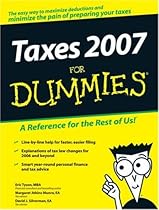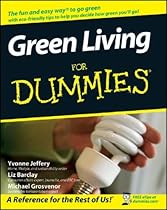Basic, But good info...
Here's an introduction to the 12 most common federal tax breaks -- new and old -- you are likely to encounter as a homeowner.
Keep in mind, tax rules and regulations are often complicated, confusing and rarely easy to decipher. Chances are, you'll need professional help to make sure you benefit from as many tax breaks as possible. A tax pro can also help you with California's state tax rules which sometimes jibe with federal rules, but sometimes don't.
First, two terms you need to know.
Deduction -- A tax "deduction" reduces your taxable income. Less income to tax means less taxes to pay. For example, a $100 tax deduction reduces your $50,000 taxable income to $49,900.
Credit -- A tax "credit" is a dollar-for-dollar reduction in your actual taxes due. A $100 tax credit reduces your $1,000 tax bill to $900.
Two of the newest home-based tax breaks are available from the federal Mortgage Forgiveness Debt Relief Act of 2007.
1. Forgiveness of Debt Tax. In some cases, when a lender allows the homeowner to forgo repayment of principal and or interest the borrower owes and discharges the debt, the debt is considered ordinary, taxable income. The new law allows certain taxpayers to exclude discharged debt from taxes, provided the lender discharges the debt in 2007, 2008 or 2009.
The amount of debt that can be excluded is limited to $2 million and the exclusion is only available for loans used to buy, build or substantially improve a principal residence. Vacation homes, investment properties and other second homes don't qualify.
"California does not conform to this new rule and you may still be subject to California taxes. It gets complicated," said Sam Kahn, an enrolled agent with Tax Reducers in San Jose.
2. Mortgage Insurance. The relief act also extends federal tax relief for qualified home owners who pay mortgage insurance. Qualified borrowers can deduct the full amount of their private or government mortgage insurance if their insured mortgage originates between 2007 and 2010. The initial one-year provision for the deduction was set to expire Dec. 31, 2007.
Those qualified are families with an adjusted gross income of $100,000 or less. Families with incomes up to $109,000 are eligible for a partial deduction.
"For people who can't get a mortgage without mortgage insurance, the fact that it is now deductible is wonderful," said Leon Sivils who is an enrolled agent and real estate agent with HomeAmerica.net in San Jose
3. Energy Tax Credits. Another relatively new tax break was made possible by the Energy Policy Act of 2005. Tax credits of up to $500 are available for upgrading heating and air conditioning systems, insulation, windows, doors and thermostats, caulking, installing metal roofs and for otherwise putting the bite on energy waste. Qualified solar energy and fuel cell systems can net tax credits of up to $2,000. Related tax credits are also available for consumers who install clean-fuel vehicle refueling property at their principal residence.
4. Mortgage Loan Interest. This is considered the Mother Of All Tax Breaks, because mortgage interest payments comprise a large portion of your mortgage payment in you loan term's early years. Mortgage interest is deductible on a maximum of $1 million in mortgage debt secured by a first and second home. The $1 million level applies to married tax filers who file jointly and single taxpayers. Married taxpayers who file separately split the maximum 50-50.
Kahn says, "The $1 million applies basically to the amount of the original purchase, plus any capital improvements. It's not just a blanket $1 million."
Home equity loan interest is also deductible, but limited to the smaller of $100,000 (half as much for each member of a married couple if they file separately), or the total of your home's fair market value as determined by a complicated formula. You'll really need professional help deciphering this one.
5. Home Improvement Loan Interest. The interest on a home improvement loan is also deductible, but calculated differently. You can deduct all the interest on a home improvement loan, provided the work is a "capital improvement" rather than repairs, or maintenance. Capital improvements typically increase your home's value (say, because you added a room), prolong it's life (a new roof) or adapt it to new uses (Universal design improvements to assist older people or people with disabilities). You can get tax benefits from repair work (painting, repairing, etc.), but only when you sell your home. However, you could use a home equity loan to make repairs and deduct the interest -- up to the available limits.
6. Points. Points, each equal to 1 percent of the loan principal, are charged by lenders as a loan cost on some loans. Refinanced mortgage points are deductible too, but only when they are amortized over the life of the loan. Once you refinance a second time, the balance of the old points from a refinanced loan offer an immediate write off, as you begin to amortize the new points.
"There's one booby trap here for the unwary. If you refinance through the same lender, then the remaining unamortized points on the existing loan can't be deducted as a lump sum if it is replaced with a new loan from the same lender," said Leonard Williams, a certified public accountant in Sunnyvale.
7. Property Taxes. Property taxes or real estate taxes are fully deductible. Any local, city or state property tax refunds reduces your federal property tax deduction by an equal amount.
8. Capital Gains Exclusion. Home buying investors' best tax shelter comes from provisions in the Taxpayer Relief Act of 1997 which allows married taxpayers who file jointly to keep, tax free, up to $500,000 in profit on the sale of a home used as a principal residence for two of the prior five years. The amount is halved for those filing single or separately. The exclusion is available as often as you qualify (one home every two years) on an unlimited number of homes.
"The capital gains tax exclusion is huge around Silicon Valley," said Russell Barnett, an enrolled agent in San Jose.
Barnett says years of home price appreciation has piled on the gains for many homeowners. When it's time to sell, a half million in untaxed gain opens a lot of financial planning doors.
"Where else are you going to get tax free capital gain like that?" asked Barnett.
Kahn says the home can be owned by either spouse.
"It doesn't matter which spouse, as long as at least one spouse owns it," said Kahn.
Alfred Giovetti certified public accountant says "Tax preparers need to counsel their individual income taxpayers (clients) to be careful to establish a permanent file for the house, similar to a permanent file for vehicles, investments, and other long lived assets. This permanent file should contain, in chronological order, all work performed on the house, all refinance HUD-1 documents, all financing paid on home improvements and the home improvements themselves, and basically all money spent on the house just to be sure nothing is missed due to a misunderstanding.
Many items such as fences, outbuildings, permanent landscaping, trees, bushes, flowers, and other improvements outside of the house count toward the basis of the home just like new kitchens, roofs, bathrooms, additions, sunrooms. Items placed inside the house also increase basis, such as washers, dryers, refrigerators, stoves, light fixtures, carpets, and drapes that might be or will be sold with the house.
Taxpayers can discuss the file and what is in the file yearly with their tax professional at tax time or perhaps after tax time at a special appointment. The tax professional can give additional advice concerning how to keep the file. Many taxpayers get confused by the IRS statement that taxpayers only need keep their tax records for three years and forget the numerous exceptions to this general rule.
9. Home-Based Business Deduction. Home-based business owners who use a percentage of their home exclusively for business can deduct the same percentage of certain home-related costs. Included are a percentage of insurance and repair costs, utility bills, improvements and depreciation. You may still have to face a recapture tax if you've taken a depreciation deduction because of the home-based business.
Kahn says, "You can also deduct a percentage of your mortgage interest and real estate taxes to reduce your self-employment tax as well as income tax and put the rest of your mortgage and property taxes on Schedule A."
10. Selling Costs and Capital Improvements. When you sell your home, you can reduce any taxable capital gain by the amount of your selling costs, which include real estate commissions, title insurance, legal fees, advertising and inspection fees. Costs typically stemming from decorating or repairs -- painting, wallpapering, planting flowers, maintenance, and the like -- are no longer considered deductible selling costs.
11. Moving Costs. A move triggered by a new job comes with some deductible moving costs. To qualify, you must meet certain requirements including, moving within one year of starting your new job, moving 50 miles farther from your old home than your old job was and working full-time at the new job for 39 of 52 weeks following the move. Deductions include travel or transportation costs and expenses for lodging and shipping an storing your household goods.
"The deduction for lodging doesn't include temporary housing but in transit housing plus one night at the new employment location," said Kahn.
12. Mortgage Tax Credit. Mortgage Credit Certificates (MCCs) allow qualifying low-income, first-time home buyers to take a mortgage interest tax credit of up to 20 percent (the amount varies by local jurisdiction) of the mortgage interest payments made on a home. This credit is available every year you keep the qualifying loan and live in the house purchased with the certificate. To benefit, you must enter your local MCC program and adhere to its guidelines.
© 2008 DeadlineNews.Com

Comments(1)